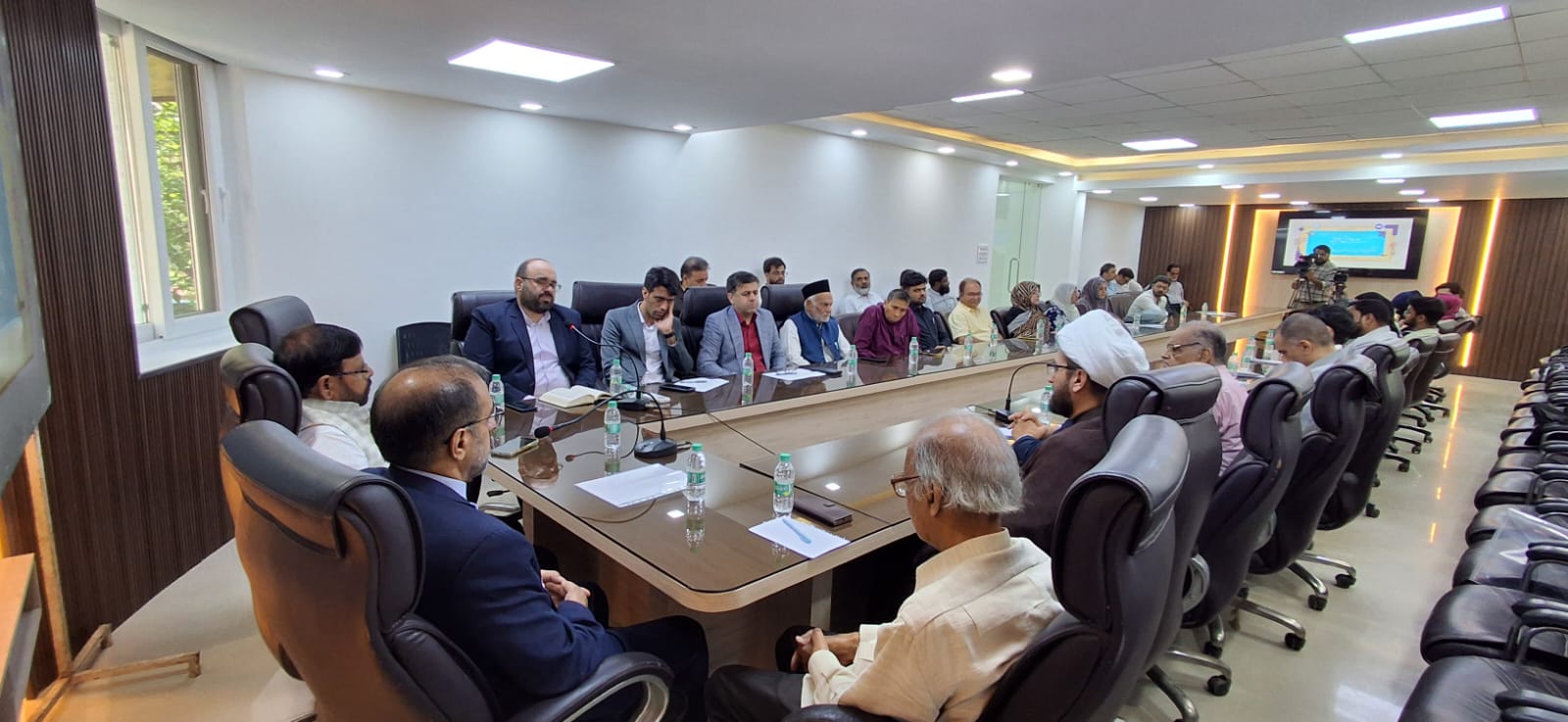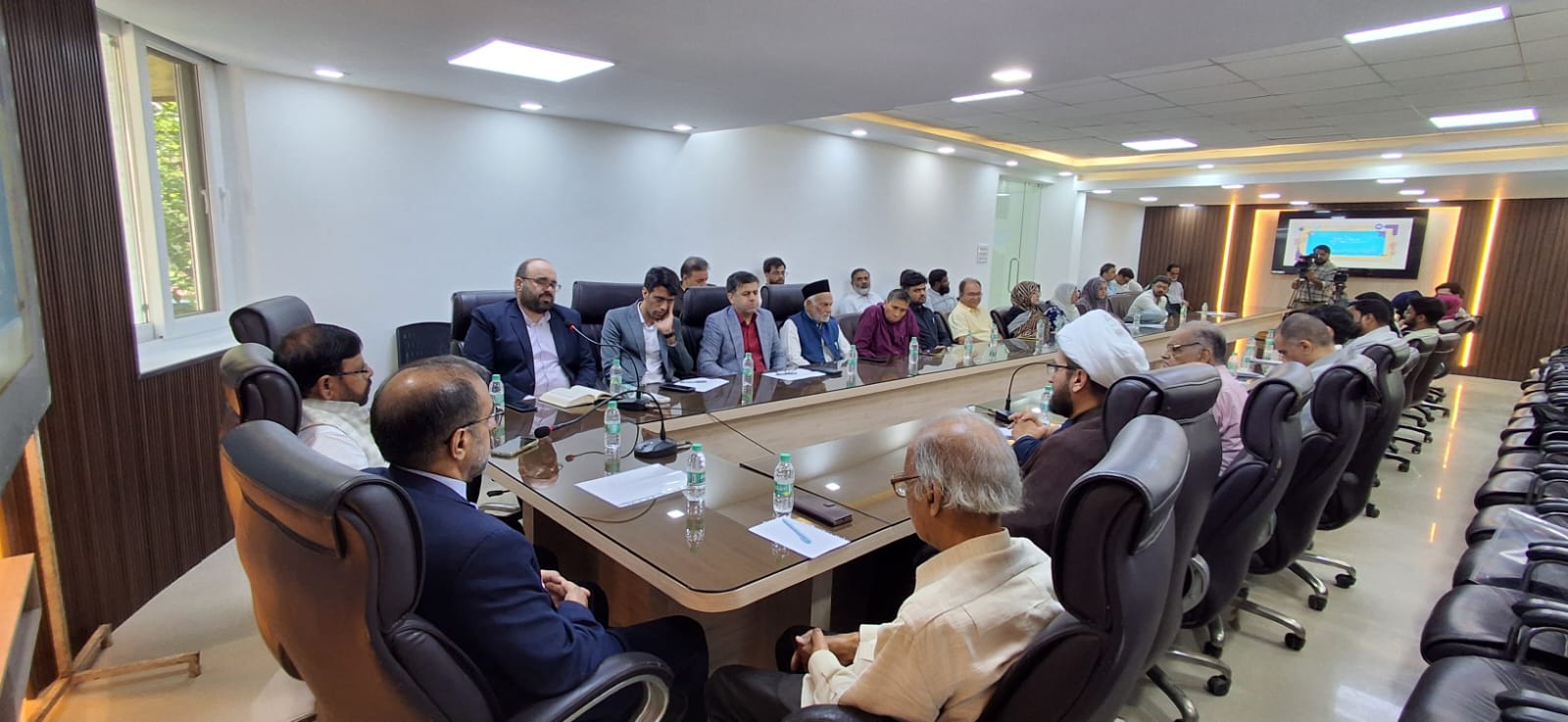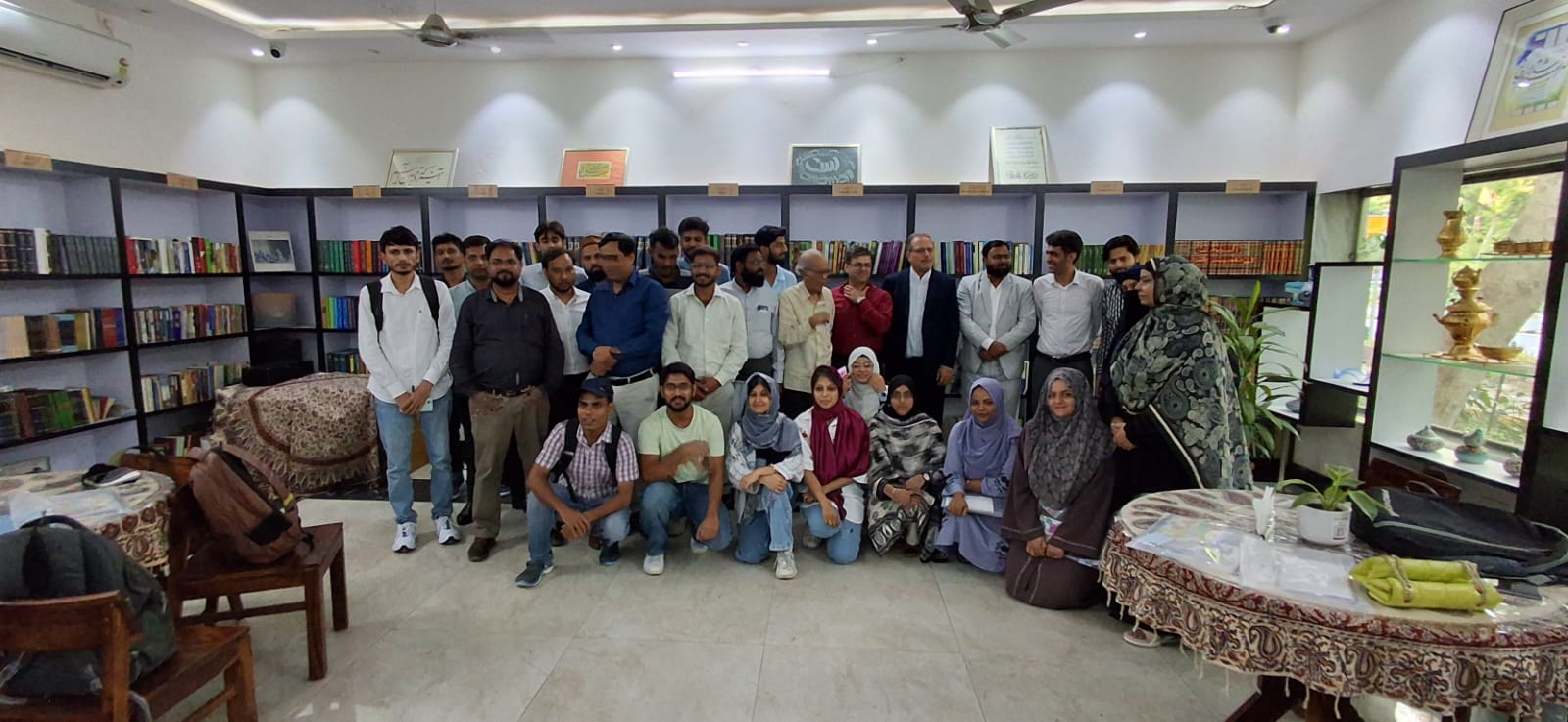Inaugural Ceremony: Knowledge Enhancement Course for Persian Language Scholars (M.A. & Ph.D.)
New Delhi - On Wednesday, August 20, 2025 – office of the Iranian Culture House, in collaboration with the Persian Research Centre, New Delhi, inaugurated a Danesh Afzaei (knowledge Enhancement) course for M.A. and Ph.D. students of Persian language from universities across India.

The ceremony opened with remarks by Iraj Elahi, Iran’s ambassador to India, He described the Persian language as a perfect mirror of Iranian culture, which holds global significance, noting that the Indian subcontinent was once home to the largest number of Persian speakers in the world.
Ambassador Elahi highlighted the role of Persian in the production and transmission of human knowledge, stating that part of the global respect for the language stems from this important function. He pointed to the challenges and opportunities facing Persian in the contemporary world and emphasized the role of new technologies in its propagation and teaching. The Ambassador thanked the Indian government for its support in promoting the Persian language and expressed hope that cooperation between the two countries would further strengthen Persian's status in India.
Following him, Dr. Sharif Hussain Qasemi, a retired Delhi University professor and one of India’s eminent Persian language scholars, shared his personal experiences in teaching Persian. He emphasized that all Indian leaders since independence have acknowledged the distinguished role of the Persian language in the country's culture, a policy that continues to this day.
Dr. Arshad Al-Qadri, a professor at Jamia Millia Islamia University, described Persian as a language of affection, humanism, and virtue, which is universally acknowledged. He stated that anyone who engages with this language connects with one of the greatest treasures of knowledge and human values.
In a video message to the gathering, Gholam Ali Haddad Adel, Chairperson of Iran’s Saadi Foundation, introduced the Saadi Foundation and its mission to promote Persian language and culture abroad. He described Persian as “the language of culture, literature and art for many centuries in India”, emphasizing its deep historical roots on the subcontinent.
Haddad Adel highlighted that India’s 2020 National Education Policy offers “a suitable and necessary framework” for advancing bilateral cooperation in the field of Persian language education. He emphasized that Persian plays a vital role in understanding India’s history, identity, and cultural heritage, noting that the deep cultural bonds between the peoples of Iran and India provide a strong foundation for strengthening collaboration in Persian studies.
Fariduddin Farid Asr, the Cultural Counsellor of the Iranian Embassy in New Delhi, thanked the Persian Research Centre of India and the Persian departments of Indian universities for their efforts in organizing this course. Emphasizing the importance of short-term enhancement courses alongside formal education, he likened them to a refreshing sherbet accompanying a regular meal. He added that alongside Persian language courses, there is readiness to hold programs on topics such as Iranology, the history of Iran and India, calligraphy, traditional art and architecture, Islamic philosophy, mysticism (Irfan and Sufism), and Quranic sciences in cooperation with Indian faculties of humanities.
Ghahreman Soleimani, Director of the Persian Research Centre, New Delhi, pointed to the strong positive response from Indian universities: “the enthusiastic response of professors and students” to this retraining course was evident . He praised India’s rich historical contributions to the Persian language, saying they have led to its flourishing across a vast region of the world.
Soleimani added, “The Persian language has also contributed greatly to the globalization of Indian culture”, noting that over the centuries the two cultures have complemented one another.
He extended his sincere appreciation to all the organizers and contributors of this pivotal initiative, expressing a fervent hope that subsequent editions of the program would extend their reach to other major cities across India.
The chief guest of the ceremony was Dr. Mazhar Asif, Vice-Chancellor of Jamia Millia Islamia, New Delhi, India. A Persian language graduate himself, he stated that his existential identity and his academic and social standing are derived from the Persian language. He highlighted the role of enhancement courses in educating a generation of professors and hoped these courses would be extended to other Indian cities.
He referred to the long-standing scholarly ties between Iran and India, describing the two nations as “ancient relatives”. He noted that Indian scholars embraced the Persian language and advanced so remarkably in this field that a significant portion of Persian’s scientific knowledge and literary creativity is owed to their contributions. Dr. Asif stated that India is a centre of diverse world languages, and all languages spoken in India have been influenced by Persian. Therefore, the overarching policy of the Indian government is to support the Persian language.
The course began with the participation of forty students from various Indian universities.
The teaching in this course is being provided by the native Persian language teachers from the Saadi Foundation, eminent Indian professors, as well as the Cultural Counsellor and the Director of the Persian Research Center, New Delhi.
The curriculum includes spoken Persian, contemporary literature, and Iranology.
India is one of the most important hubs for the Persian language in the world, with Persian taught in over one hundred and forty universities and higher education institutions across the country.




Write your comment.